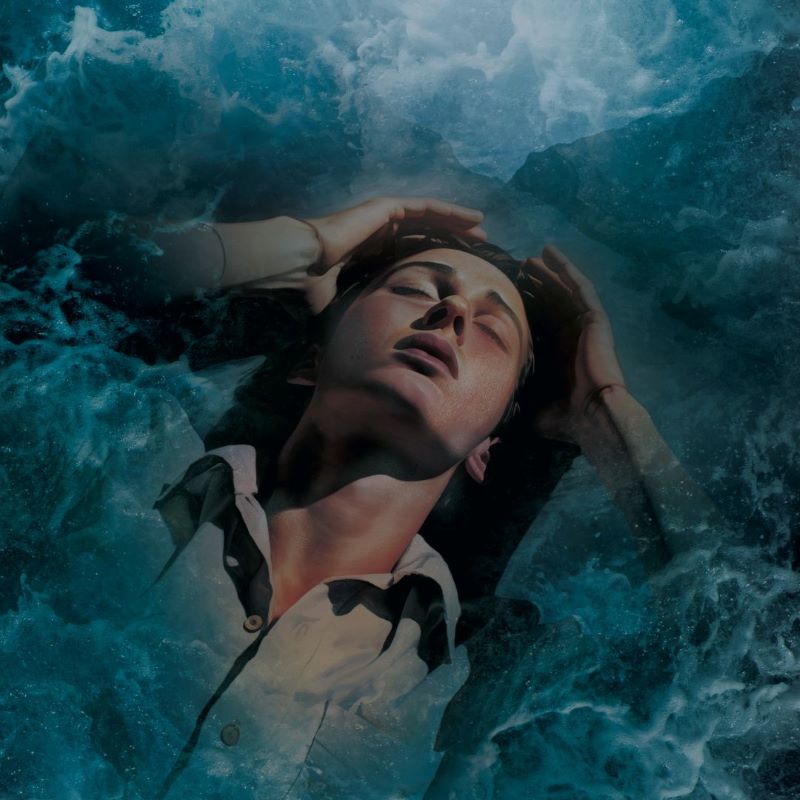Riders to the Sea written by Ralph Vaughan Williams based on the play by JM Synge visits MAST Mayflower Studios from Thursday 30 January to Saturday 1 February 2025.
We spoke to Michael Betteridge, Composer of Riders to the Sea and prologue The Last Bit of the Moon.
How did you become involved in music?
Neither of my parents were particularly engaged with music when I was growing up, but my Mum did buy a really cheap out of tune (but beautiful!) piano to ‘have around the house’. I was enamoured with it from a young age and my parents were kind enough to support piano lessons.
I never intended to go into music professionally, especially as it never felt like a secure career choice, but around the age of 16 when doing work experience I realised it was something I just had to do. I studied at the University of Manchester and really fell in love with music.
How did you get involved in the project?
I was involved as one of the community choral leaders for one of OperaUpClose’s previous projects, The Flying Dutchman, and, around the same time, Flora came to see a semi-staged song cycle of mine called Voices of the Sands. The themes in that work, as well as mine and Flora’s shared passion for opening up creative processes in opera to all, I think – if memory serves (!) – led to Flora inviting me on to this project, which I leapt on, of course!
How daunting and fun was it to work with Ralph Vaughan Williams’s score?
Very daunting!
It’s a particularly challenging score to rework, especially as it’s a very harmonically rich piece and to reduce that to only a few instruments means tough choices sometimes have to be made. It was Flora’s idea to use an accordion, and I’m so glad she did, otherwise I think it would have lost a lot the flavour of the original. I’ve been very faithful with the arrangement, it’s definitely a reduction, as opposed to a total re-working. However, the original orchestration is huge and even with my faithfulness to it, the new arrangement,
I hope, feels very fresh to the ears. This size of ensemble also allows for real intimacy and dynamic contrast that the original does a good job of, but is tricky with such large instrumental forces.
The choir you set up The Sunday Boys have recorded some audio for the show, how do you go about merging pre-recorded audio with a live score?
Good question!
It’s not easy! Matt Fairclough has been our audio engineer on the project and we had experience of doing this together on the previous production I mentioned above, The Flying Dutchman.
There are lots of ways of merging live and pre-recorded, and some of this will be worked out in the rehearsal room, but our plan is to provide the instrumentalists with a click-track for the moments they need to sync with the prerecord. A sound engineer will trigger the click at the appropriate moments. This will allow for the live musicians to work freely when all the music is live – which is generally a more desirable way of working – and then sync up perfectly with the pre-record when needed.
The show is touring to eight UK locations, what do you hope audiences will take from the production?
Riders to the Sea is such an unusual piece because it is much more a ‘sung play’ as opposed to a grand opera.
Our version has really leant into this concept and the reduced orchestration allows for the intimate moments to be even more intense. But, for me, it’s the universal themes of family, home, and grief that come to the fore in this work.
We all have such different relationships with these three ideas and every member of the audience will experience and interpret the piece in vastly different ways. That’s the beauty of this work and I hope it gives audiences that opportunity to reflect.
What projects do you have in the pipeline?
I actually have another opera touring at the same time as this one!
It’s very different: written for English Touring Opera, it’s an opera for children called The Vanishing Forest with words by Jonathan Ainscough and is a sort of sequel to A Midsummer Night’s Dream.
I am also waiting to hear whether I have funding for a new Anglo-Icelandic dance opera called She Spoke Ashes that explores gesture and rhetoric in politics.
If we are successful this will hopefully go into production in summer 2025 and open in Reykjavik. Watch this space!
Tickets for Riders to the Sea (30 January – 1 February 2025) are on sale at mayflower.org.uk or 02380 711811.
- In Common is not for profit. We rely on donations from readers to keep the site running. Could you help to support us for as little as 25p a week? Please help us to carry on offering independent grass roots media. Visit: https://www.patreon.com/incommonsoton

